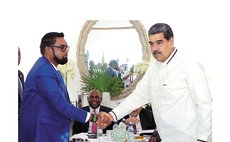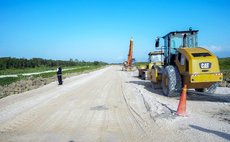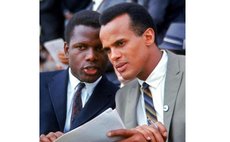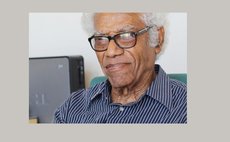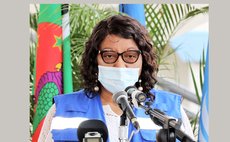Crime and Colonialism Collide
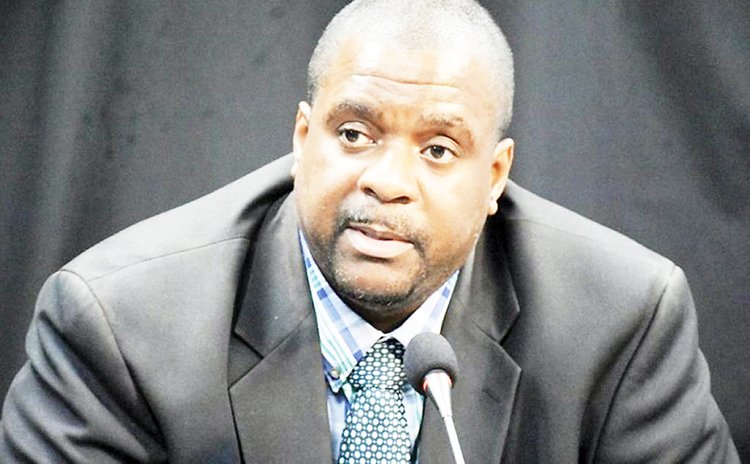
Anthony Fahie, the premier of the British Virgin Islands is arrested in Florida for alleged drug trafficking; meanwhile, the UK government threatens return to colonial rule in the BVI
When Anthony Fahie, the British Virgin Islands (BVI) premier, was arrested in Florida last week by the US Drug Enforcement Agency (DEA) and charged with drug trafficking and money laundering offences, many wondered why a head of government would allow himself to become so entangled.
But for Kenneth Rijock, the Miami-based attorney and advisor to American and Canadian anti-narco-trafficking agencies, the answer is simple: arrogance.
"In my experience, I have found that to a man, every national leader of Eastern Caribbean countries or possessions are extremely arrogant and don't always look before they leap," Rijock told The Sun in a telephone interview. "To an ordinary person like you or I, it sounds pretty stupid and foolhardy, [but] these people have become so damn arrogant, and they are surrounding themselves with sycophants who always paint everything in, 'you're bulletproof, you can do whatever you want,' and so this premier thinks he can do no wrong. And he's not the only one."
This is not Fahie's first encounter with US law enforcement agencies. Back in 2003, he was the subject of a US federal investigation into whether he and his wife had engaged in money laundering while he was the British territory's education and culture minister. The investigation was eventually dropped.
Given the fact that he reportedly wanted to be sure the informant wasn't working for the DEA, saying in one phone call: "It took me 20 years to get here, and I don't want to leave in 20 minutes," it was all the more baffling that he willingly walked into the trap, argued Crispin Gregoire, an international relations expert.
"It tells me about the character of the people who are leading our countries," Gregoire told The Sun.
DEA's resolve to hold corrupt leaders responsible
Fahie was arrested in Miami on 28 April, alongside Oleanvine Maynard, the head of the BVI port authority, and her son, Kadeem, after agreeing with an undercover informant, a US$700,000 payment to allow traffickers to use BVI ports, according to charges filed in the US. DEA agents had pretended to be cocaine traffickers from Mexico's Sinaloa Cartel, said to be the largest supplier of illegal drugs to the US market and formerly run by Joaquín "El Chapo" Guzmán, the now-imprisoned drug lord. Based on his own calculations, Fahie estimated he would earn no less than US$7.8 million overall.
"Today is yet another example of DEA's resolve to hold corrupt members of government responsible for using their positions of power to provide a safe haven for drug traffickers and money launderers in exchange for their own financial and political gain," said Anne Milgram, a DEA administrator, following the arrests.
The 51-year-old leader's detention is reminiscent of that of Norman Saunders, who was chief minister of the Turks and Caicos Islands when he, along with Stafford Missick, his commerce and development ministers, was arrested in March 1985 and charged with conspiracy and conspiring to import drugs into the US.
Saunders was alleged by the DEA to have accepted US$30,000 from undercover agents to ensure safe passage of drugs by permitting safe stopover refuelling of drug flights from Colombia to the United States. Video evidence showed him accepting $20,000 from an agent. Saunders was convicted in July 1985 of conspiracy but was acquitted of the charge of conspiring to import the drugs, although Missick was convicted of that charge. The then chief minister was sentenced to eight years in prison and fined US$50,000.
In the ensuing years, there has been little appetite in the US to go after corrupt government leaders, parliamentarians or top dignitaries, which lead them to believe they are untouchable, according to Rijock.
However, the financial crime consultant and intelligence analyst said the tide was turning. And, though careful not to point fingers at any individual, Rijock was of the view that many in the Eastern Caribbean would be looking over their shoulders.
"Now that the United States has actually arrested a premier it shows that the gloves are coming off and . . . this has probably got a lot of people sleeping very little down in [countries like] Antigua and Dominica because they know damn well they've been involved in all sorts of criminal activity for years, and they always thought that they were bulletproof. But they don't have a get-out-of-jail-free card anymore," he concluded, adding that those with passport-for-sale programmes were the worst offenders.
Commission of inquiry
Fahie's arrest followed a commission of inquiry, appointed last year and led by British judge Sir Gary Hickinbottom, into the state of governance in the BVI amid claims about corruption and misuse of taxpayers' money.
The commission's report was released following Fahie's detention, and although John Rankin, the BVI governor, said the two were not connected, few believe the Brits and the Americans did collaborate.
"They had to waive the immunity for him to be arrested [and] I think that waiver of immunity was sitting on somebody's desk and all they had to do was sign it and date it the day they arrested him," a US official told The Sun. "That request was pending long before they arrested [the premier]."
According to the Hickinbottom-led review, the state of governance in the territory is "appalling bad," with elected public officials shunning the basic principles of good governance, giving rise to an environment in which dishonesty can flourish.
It recommended a two-year suspension of the BVI constitution, cessation of the elected ministerial government and the direct rule of the UK appointed governor.
This has not gone down well with the BVI population, who, though "shocked and troubled" by the allegations against the premier, do not wish to be subjected to direct rule.
"Britain has to be concerned about the fight, the resistance, they're gonna get from the people," one resident told The Sun.
Fahie himself has described the entire episode as a conspiracy between London and Washington to derail his government's fight for the "right and determination to set our own destiny as a people," according to a widely distributed message believed to have come from the premier.
Describing his arrest as a "minor British led entrapment," the defiant Fahie insisted he would not resign and promised to lead the fight against Britain.
"The people of the Virgin Islands, I was framed by our colonial masters, with the help of the United States, to oust myself from office, embarrass the VIP party [the ruling Virgin Islands party] but most important bring doubt and shame to the people of the Virgin Islands," said the message. "Do not be fooled by this."
